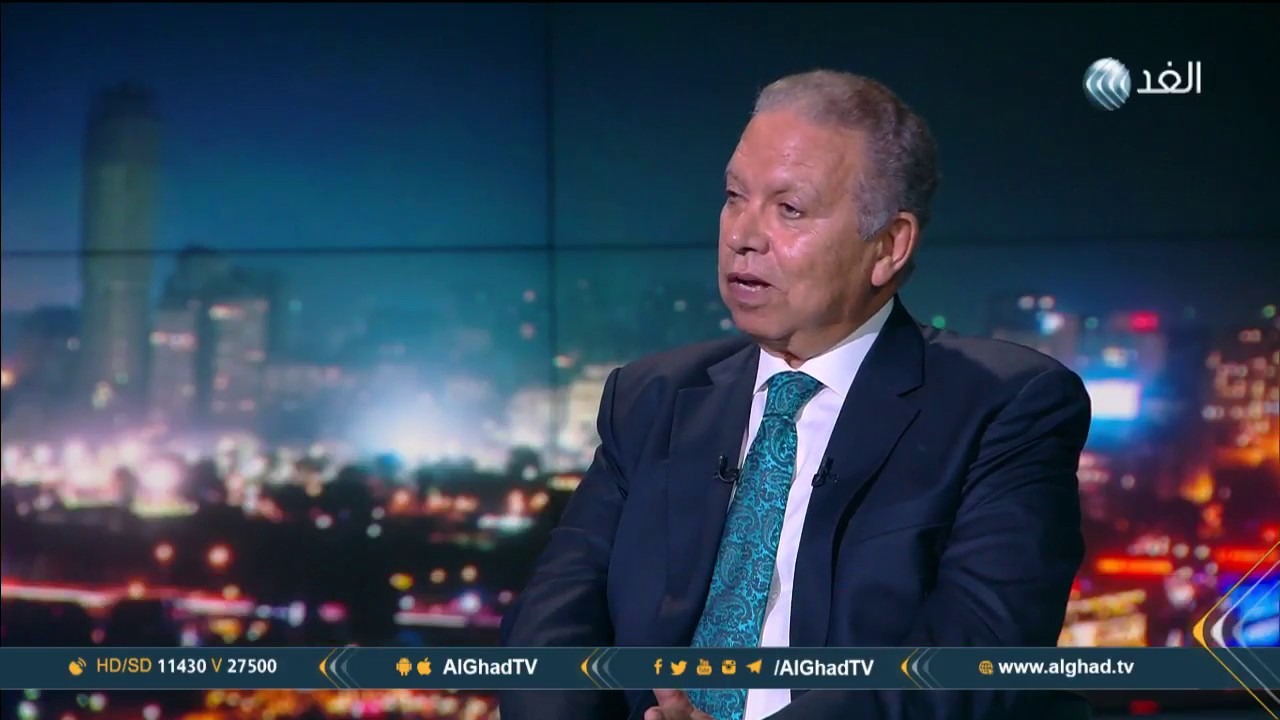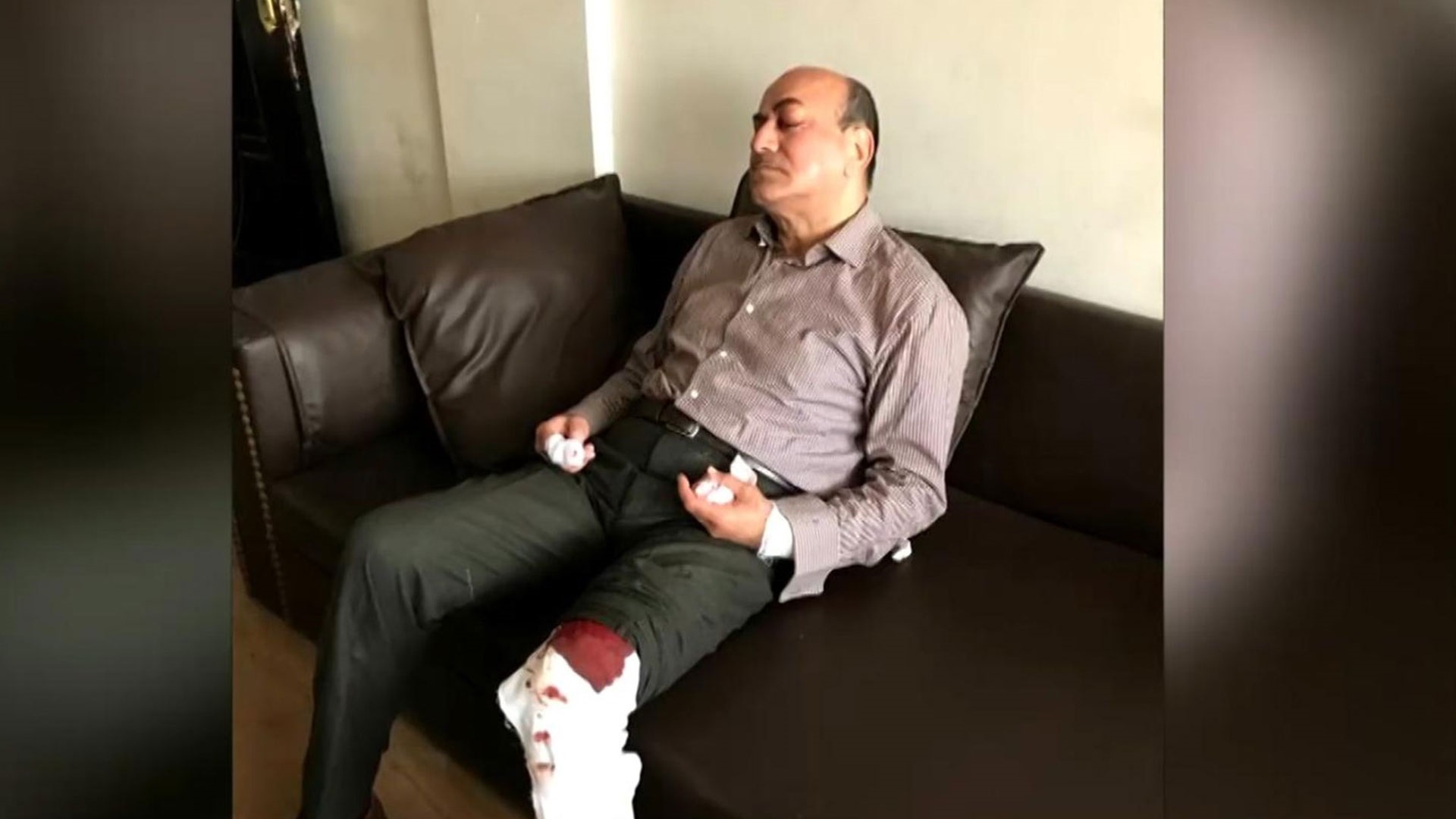Through Interpol and Judicial Orders: Why Sisi is Pursuing a Naval General from the Elite Army

Admiral Mohamed Ahmed Ibrahim Youssef was not an ordinary general in the army.
The swift justice that the head of the Egyptian regime Abdel Fattah el-Sisi previously mentioned rarely applies to specific institutions, particularly the armed forces, police, and judiciary.
The military and its senior generals maintain a “special status” within the authoritarian structure in Egypt, making it nearly impossible to prosecute an officer or general under any circumstances.
Retribution occurs Only in specific cases, typically when there is a clash with the head of the regime or a struggle for power, as seen with former Chief of Staff Sami Anan and General Ahmed Shafik.
Recently, another high-ranking general, Admiral Mohamed Ahmed Ibrahim Youssef, has topped the list of security wanted individuals in Egypt.

Sentencing
On September 8, 2024, the Cairo Criminal Court sentenced former military leader and Chairman of the Holding Company for Maritime and Land Transport, Major General Mohamed Ahmed Ibrahim Youssef, to ten years in prison.
This ruling stems from accusations of conducting illegal deals directly with the Gulf Egyptian Investment Group, profiting tens of millions of Egyptian pounds.
The sentence was issued in absentia, as Youssef is a fugitive outside the country. The court also sentenced the Deputy Chairman and Managing Director of the same Group, Medhat Mansour Mustafa, to ten years in prison and fined both men 30 million Egyptian pounds (approximately $618,000).
This ruling marked a significant turn in the pursuit of the fugitive general. On May 25, 2023, Egyptian authorities officially requested Interpol to place Youssef on its wanted list.
The verdict sparked considerable debate, as it was the first of its kind during el-Sisi's rule—a time characterized by the protection of generals.
This situation has raised questions about corruption among military leaders while in service, particularly as the military's economic empire expands, alongside issues of corruption among retired military officials appointed to leadership positions in provinces, cities, and public companies.
There is also the possibility that the general may be a victim of factional struggles within the military.
An Unusual General
Major General Mohamed Ahmed Ibrahim Youssef is no ordinary general; he is a senior figure within the armed forces.
He has had a long ascent, ultimately becoming a retired Major General and leading the Navy Armament Division, which oversees the armament of the entire naval forces.
He served as Commander of the Port Said Naval Base and later as Chief of Staff of that base.
Additionally, he was in charge of the Submarine Brigade and served as its Chief of Staff, as well as heading the Military Operations and Training Department for the Brigade.
Youssef also held the position of Military Attaché in Beijing, China.
Among his significant qualifications, he earned a Bachelor's degree in Marine Studies from the Naval Academy in 1969, a Master's degree in Military Sciences in 1983, completed a senior war college course at Nasser Higher Military Academy (NHMA), and attended a senior military leaders course in 1996.
He also obtained a fellowship at the Joint War College in France from 1984 to 1985, equivalent to a Ph.D. from Sorbonne University.
In 2012, he became Minister of Business Sector in the interim government led by Kamal Ganzouri during the military council chaired by Field Marshal Muhammad Hussein Tantawy.

Corruption Quagmire
The corruption incidents involving a general of this stature bring attention to corruption issues within the military, particularly given the lack of transparency and oversight regarding the economic activities of the armed forces.
In 2015, the former head of the Central Auditing Organization, Hisham Geneina, exposed a scandal involving corruption in state agencies, including the military, estimated at 600 billion Egyptian pounds (approximately $12 billion) over just three years.
This led el-Sisi to dismiss him in March 2016 in an unconstitutional manner, as Geneina's position was protected from removal due to his role as the head of a regulatory body.
In February 2018, Geneina spoke again about corruption among Egyptian state entities, including the military. He claimed that former Chief of Staff Sami Anan possessed documents incriminating many current leaders and evidence of corruption involving prominent military figures.
On April 24, 2018, an Egyptian military court sentenced Geneina to five years in prison for allegedly spreading false information, damaging the military's reputation, and disturbing public order.
Given these incidents and the lack of transparency in Egypt, which ranked 130 out of 180 countries on the Corruption Perceptions Index for 2022, experts argue that it is difficult to ascertain the extent of corruption within military-affiliated companies.
Other Incidents
In discussing the corruption of Admiral Mohamed Youssef and Geneina's attempts to expose military corruption, one cannot overlook Egyptian artist and building contractor Mohamed Ali, who surprised everyone in September 2019.
Ali released a series of videos accusing el-Sisi and several senior military leaders of corruption. He claimed he had fled to Spain after receiving threats from the military and intelligence services, citing unpaid dues amounting to approximately $10 million.
In one of his videos during this time, Ali stated, “I was a cog in the military's economic machine for many years.” He addressed corrupt generals, saying, “Be careful, you can't discredit me because I grew up within your ranks, working alongside you for 15 years.”
Mohamed Ali has become a significant voice against el-Sisi's regime in recent years, accusing him and senior military leaders of wasting billions of pounds. He asserted that “the military spends vast sums on facilities that provide no benefit to ordinary citizens,” citing the construction of hotels and homes for el-Sisi and his family as examples of non-transparent operations.
On September 14, 2019, el-Sisi himself responded to Ali's serious allegations, which had sparked his concern. The head of the regime stated, “No one can undermine the trust between the armed forces and their supreme commander and the people.”
In his remarks, el-Sisi confirmed aspects of Ali's claims, admitting to the construction of new presidential palaces in various locations and defiantly stating, “Yes, I built presidential palaces, and I will continue to do so,” further fueling public discontent against his leadership.
Despite the accusations from state-aligned media labeling Ali as a “traitor” and a member of “sleeper cells” (a term used for the opposition), the evidence and names of senior generals he mentioned suggest he emerged from the system only to turn against it.
Pursuit of the General
Egyptian journalist Ali Bakari dismissed the idea that the sentences issued against Admiral Mohamed Ahmed Ibrahim Youssef stemmed from revelations of corruption or a purging process.
Bakari told Al-Estiklal that “if we look at the details, we find that the admiral is accused of embezzling and profiting around 15 million Egyptian pounds [approximately $310,000], which is insignificant in terms of the billions lost to corruption within the military.”
“The man was responsible for the naval armaments department, and it is known that generals in armament or housing divisions are the 'whales' of the military who swallow billions.”
“Admiral Youssef appeared in state media defending el-Sisi and the policies of the new republic until 2017, but it seems he was somehow aligned with the group of General Sami Anan and was close to him,” he added.
“It appears that the admiral communicated and met with Sami Anan before 2018, especially since there was widespread discontent among senior military generals against el-Sisi prior to the events of September 20, 2019, and Admiral Youssef was likely part of that leading group, possibly taking a prominent role in the internal scene.”
“This is the only explanation for the harsh treatment of the admiral in this manner, and we should not forget that he fled, indicating that other parties warned him and facilitated his escape from the country,” Bakari concluded.
Sources
- Eight Years in the Making: Mohamed Ali Continues Exposing Military Leaders' 'Corruption' [Arabic]
- Egypt Seeks Interpol Arrest Warrant for Ex-Military Leader Over Corruption
- Egypt seeks Interpol arrest warrant for ex-military leader
- Why Did El-Sisi Place a Former Army General on Interpol’s Wanted List? [Arabic]
- Hisham Geneina: Dismissal, Assault, and Imprisonment [Arabic]











